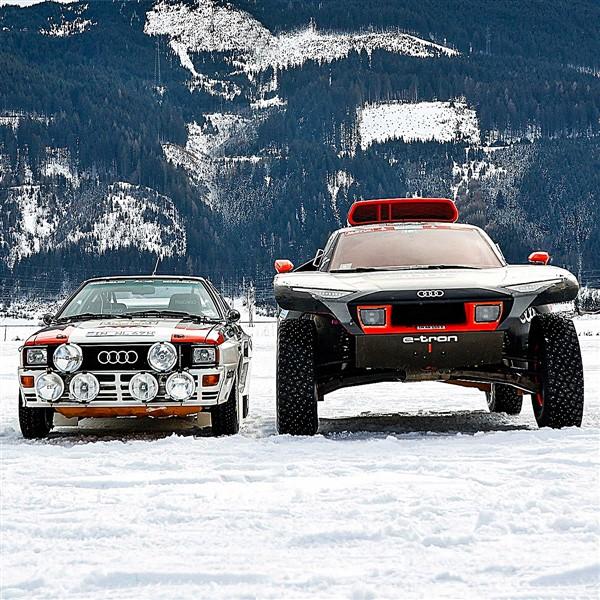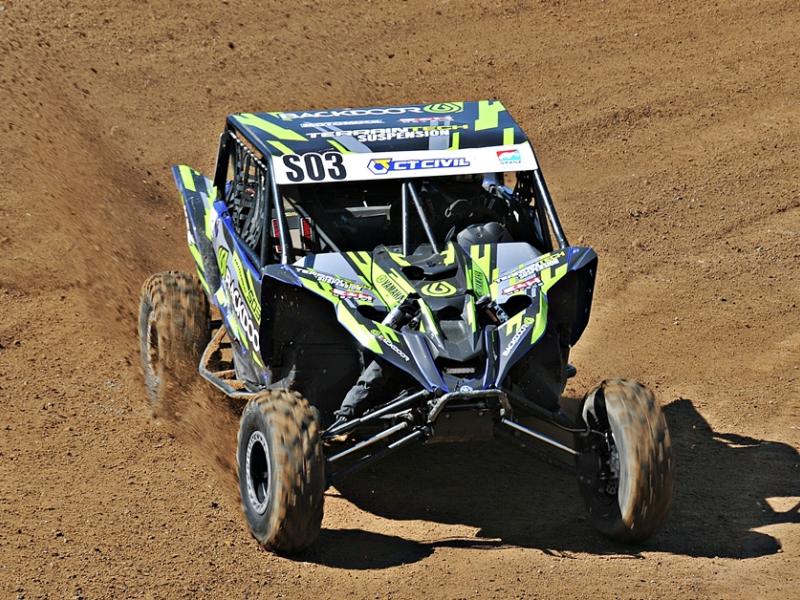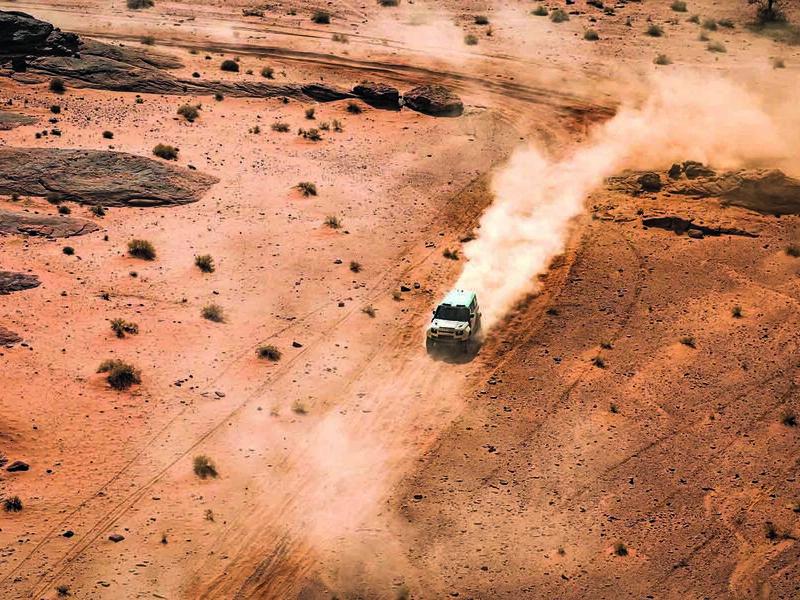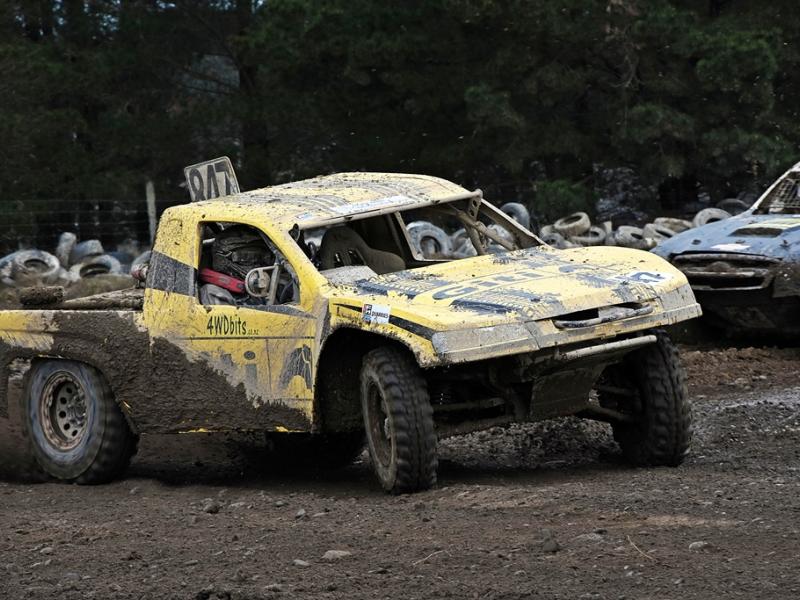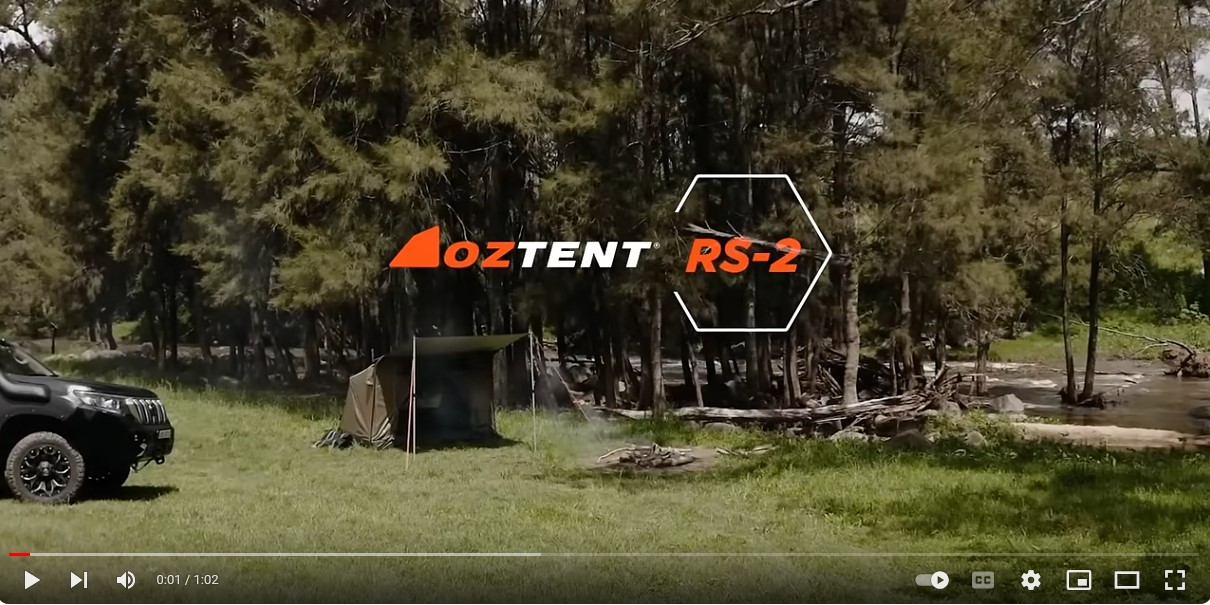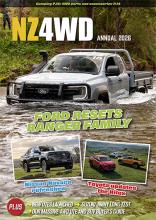The compamy created a 4WD trend and continues to innovate
A shiny Audi sliding past up a city street doesn’t have a lot in common with the military mud-pluggers used by armies around the world, nor with the epic Dakar off-road endurance race. Or does it? There’s actually a strong line connecting the three.
From rallying to circuit racing to premium road cars all the way to off-road racing, Audi’s Quattro drivetrain has shown the way.
The 1980s were an interesting time in automotive technology.
Traditional 4WDs were still a niche product, used for specific roles and many were ‘bare bones’ vehicles with a tough but utilitarian look and wind-up windows. Air conditioning was for the weak. So was power steering.
The full-time-4WD V8-engined Range Rover had already created a whole segment – Sport Utility Vehicles – in the 1970s. It owned that segment for seven years, unchallenged.
The likes of Jeep had begun to offer slightly more plush 4WDs in an effort to plug into the growing desire for ‘nice’ 4WDs that could take the kids to school or soccer.
There were stirrings in Japan, where a little-known offshoot of Fuji Heavy Industries was toying with its own design of part-time 4WD transmission for its cars and utes. Subaru was taking small steps into the market, but had yet to capture the attention of our own Possum Bourne, who would do so much to advance the all-wheel-drive cause in New Zealand and Japan.
But in Germany, a visionary company formed from the damaged post-war remains of four other auto companies had started looking very seriously at how to add more traction (pun intended) to sales of its medium and large sedans and estates. As the 1980s dawned, the Audi organisation was about to become a significant player and global brand.
By adding an enormously strong transmission based on the design of the gearbox and diffs from an Iltis 4WD to its angular front wheel drive coupe, Audi created the Quattro. It was the company’s engineer Walter Treser who coined the name (otherwise it could have defaulted to ‘Carat’, a compression of the German description of a vehicle with a car body and 4WD). Having created a drivetrain that could reliably deliver power and torque to all four wheels the company faced a challenge – how to convince buyers that 4WD in a car was an advantage?
The answer was found in rallying, a sport in its heyday and one that took cars into spectacular locations around the world including every market Audi wanted to conquer.
Starting with the original car running as a ‘zero’ car on the 1980 Monte Carlo rally with Hannu Mikkola at the wheel, the legend began. Mikkola and Arne Hertz were fastest through the event, finishing 20 minutes ahead of the actual winner. In the following years almost every ‘name’ driver had a stint behind the wheel of a Quattro. Factory team drivers were Mikkola, Stig Blomquist, Michele Mouton and Walter Rohrl – all legends of the sport. In 1984 the Quattro took Audi to the WRC driver’s and manufacturer’s titles.
Nobody who witnessed the Group B years will ever forget the flame-spitting 380kW (500bhp) beasts that took these factory drivers to victories on every continent – nor the sound of a Quattro at full noise in Woodhill Forest or Maramarua.
Not only did the Quattro sweep the World Rally Championship, winning in all conditions and environments, it propelled Audi into premium road-car market dominance worldwide.
Local followers of rallying will also know of the exploits of the late Malcolm Stewart who dominated Kiwi rallying in an ex-Mikkola ‘A2’ Quattro, in the mid-late 1980s. Fast gravel, muddy tracks deep in Kiwi forests, narrow patchy rural tarmac – Stewart and the Quattro ruled.
Audi has come a long way since, but looking at its off-road race car for the epic Dakar endurance race the company’s motorsport heart still beats strongly. Audi has come full circle and is back in the dirt; but this time it’s a quattro with a small ‘q’ thanks to the adoption of the company’s e-tron hybrid-electric drivetrain, brought across into a prototype off-road race car for the epic Dakar race.
The Audi RS Q e-tron is the company’s mobile test bed for the development of new electric technologies. Because there are no charging opportunities in the desert, Audi used the TFSI petrol engine from its German touring car championship, pairing it with an energy converter that charges the vehicle’s high-voltage battery while driving. The combustion engine runs between 4,500 and 6,000 rpm and has no direct connection with the drivetrain.
The Audi RS Q e-tron’s front and rear axles are fitted with motor-generator units from the current Audi e-tron FE07 Formula E car which has been developed by Audi Sport for the 2021 season. A third MGU, of identical design, is part of the energy converter and recharges the high-voltage battery while driving; energy is recovered during braking. The battery weighs about 370 kilograms and has a capacity of around 50 kWh.
Remember the original Quattro’s 380kW? The new vehicle can produce a maximum of 500kW.
These immense technology resources are driving innovation in automotive engineering. Motorists on and off the road will directly benefit from this work.
Just don’t expect an Audi ute any time soon, ‘Cyber’ or otherwise.


